From stashing food to roosting in groups, birds have the means to flourish.

To withstand winter, birds take extra measures to stay warm and energized. Instead of reaching for mittens and long underwear like humans, birds grow more feathers, hide extra food and put on extra weight to fight the cold.
Cardinals, chickadees, woodpeckers and goldfinches all stick it out in colder regions while other birds fly to substantially warmer climates for winter. Some birds that stay in the northern U.S. breed in the far northern reaches of Canada in summer and fly only as far south as necessary to find food in winter. This means spending the winter in midwestern backyards, where their special adaptations help them keep warm and find food.
Juncos and American tree sparrows add extra weight for the coldest months of the year, gorging themselves when they can. The fat deposits they develop help them survive when seeds from plants and shrubs are covered with snow. Some species even change what they eat when their normal food sources are unavailable.
この記事は Birds & Bloom の December/January 2019 版に掲載されています。
7 日間の Magzter GOLD 無料トライアルを開始して、何千もの厳選されたプレミアム ストーリー、9,000 以上の雑誌や新聞にアクセスしてください。
すでに購読者です ? サインイン
この記事は Birds & Bloom の December/January 2019 版に掲載されています。
7 日間の Magzter GOLD 無料トライアルを開始して、何千もの厳選されたプレミアム ストーリー、9,000 以上の雑誌や新聞にアクセスしてください。
すでに購読者です? サインイン
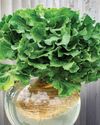
Basics of Hydroponics
Use these top tips and plant picks to have a successful soil-free garden
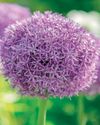
Rooted in Resilience
These hardy perennials will thrive in most zones
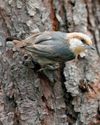
Social and Supportive
Brown-headed nuthatches take a helpful approach to raising their young
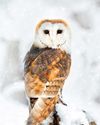
All About Owl Pellets
And why you should give a hoot about them
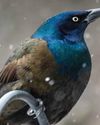
Ask the Experts
Advice from our pros about houseplants, bird feeding and more

BRING THE OUTDOORS IN
Making a terrarium is about as close as you can get to a Zen DIY project. Once you have gathered the proper materials and squared away your plant selections, it's as simple as layering it all together and watching your mini ecosystem thrive. Here, I'll walk you through my foolproof process and cover all the required elements for good filtration, healthy soil, strong root growth and resistance against fungus and disease.

GROW THIS. NOT THAT
Six easy-to-grow houseplants—and six that may not be the right choice for you
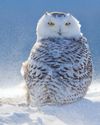
Winter MAGIC
Forecasts may be frigid, but grab your binoculars because birding opportunities are still incredible
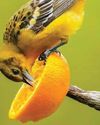
Sense or Nonsense? - Why some birds can taste and smell - but others can't
Does a porcelain berry taste like a blueberry to a gray catbird? Does a block of lard smell like frying bacon to a northern flicker? The short answer is no. While some avian species do have a well-adapted sense of taste or smell, they can't distinguish between flavors and odors the way humans can. They're not picking up every ingredient in the suet you put out, says José Ramírez-Garofalo, an ornithology researcher at Rutgers University in New Jersey and the director of Freshkills Biological Station in Staten Island, New York.
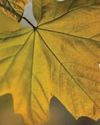
Maple Mania - Amazing facts about this fall foliage mainstay
Amazing facts about this fall foliage mainstay